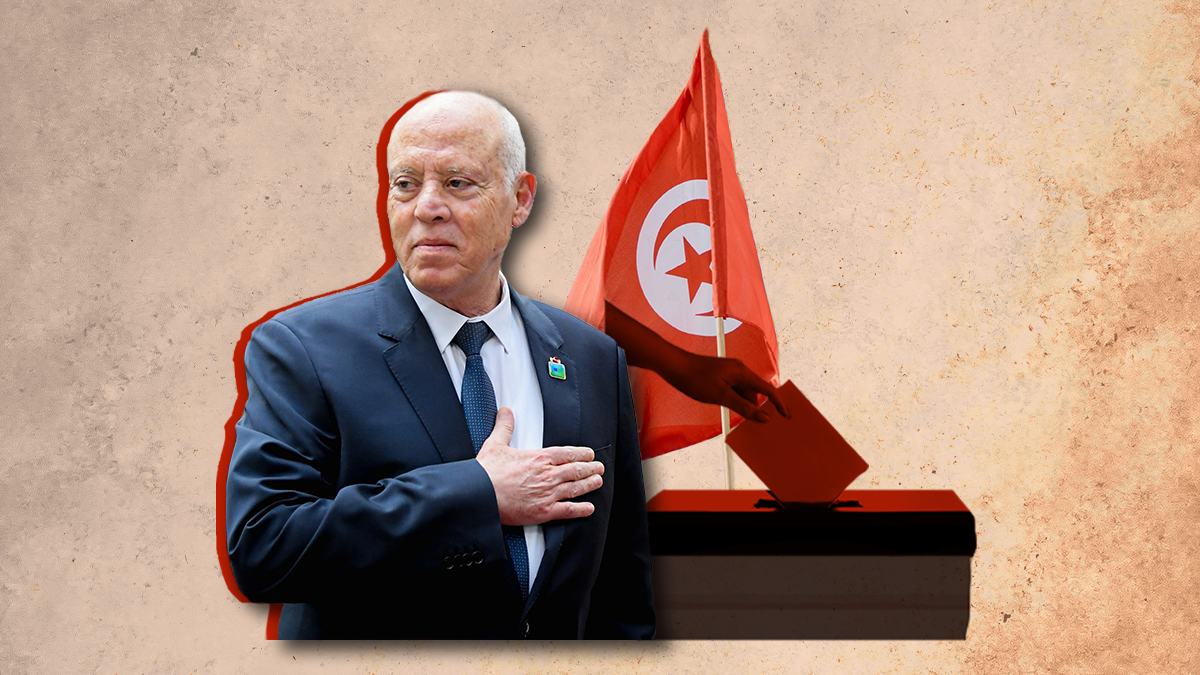The birthplace of the Arab Spring and the only country to emerge from it as a democracy — albeit an imperfect one — is now well on its way to becoming something … different.
An exit poll shows that more than 90% of Tunisians who voted in a referendum Monday approved new constitution that critics say is anything but democratic, mainly because it gives more power to the president at the expense of parliament and the judiciary. Not so, argues President Kais Saied, who claims the 2014 charter gave too much power to lawmakers and judges in the North African country of 12 million.
Turnout, as expected, was low. That's no surprise given that most opposition groups boycotted the referendum. But only 27.5% of voters showing up means that Saied — who refused to set a minimum threshold for the result to be binding — can hardly claim a popular mandate for constitutional change.
How did we get here? Exactly one year ago, Tunisia was suffering the worst political, social, and economic crisis of its democratic era.
COVID infections were soaring, the economy was going nowhere, inequality was rising, public services were hard to come by, and one-third of young Tunisians were unemployed. Democracy had failed to deliver on its promise of a better life due to fragmented parliaments, political infighting, and rampant corruption.
Saied decided to intervene by firing the government and suspending the legislature. Since then, he's doubled down on his emergency powers, ruling by decree and going after his critics, mainly the moderate Islamist political party Ennadha and the judiciary, which the president believes is in cahoots with politicians and the business elite.
But the Tunisian leader's authoritarian vibes don’t jive with his low-key persona. Far from appearing like a fearsome tyrant, Saied is a bookish former constitutional law professor in his seventies known as Robocop — not for being tough on crime, but rather for his stiff speeches delivered in monotone classic Arabic instead of the Tunisian dialect.
Still, he's gone from being elected in 2019 as a political outsider with more than 70% of the vote to dividing his people.
His supporters view Saied as a hero for "challenging the status quo" of corruption and political stagnation, says Eurasia Group analyst Sofia Meranto. For them, he's being decisive and "maintaining a sufficient veneer of doing things by the book" according to his unique legal interpretation of the same constitution he wants to ditch.
The president's detractors, however, resent him for chipping away at the pillars of a system "they have been building for more than a decade, even if it wasn't perfect," Meranto explains. In their view, Saied is "diluting the checks and balances" of the parliamentary democracy that Tunisians fought for in the Arab Spring.
Has the authoritarian-democratic experiment worked so far? Depends on whom you ask.
The president's fans say he’s dismantling a dysfunctional political system that wasn't doing anything to solve the country's problems. They love his populist gestures like demanding that tycoons cough up billions of dollars he claims they looted from the state to avoid prosecution for embezzlement.
Saied's opponents, meanwhile, claim the economy is in even worse shape than when the president seized power. Inflation is hovering above 8%; debt, pensions, and subsidies are draining state coffers; and the government is at serious risk of default if it doesn’t get an IMF bailout soon.
In the middle are many Tunisians with a high level of political apathy who were initially willing to give Saied a chance but have since soured on him over the economy, says Meranto. Some were not even aware of the referendum, which in part explains the low turnout.
What comes next? Undeterred by the low turnout, Saied will surely push ahead to hold parliamentary elections by the end of the year, the next phase of his plan to “break with the past.” But he has yet to publish the electoral law, and the new charter has watered down the power of lawmakers.
Tunisia will "try to muddle through" the next few months despite the worsening economic crisis and perhaps some social upheaval ahead of the December polls, says Meranto. The bigger problem is that with so many Tunisians having checked out of politics, the country might be sleepwalking into autocracy.